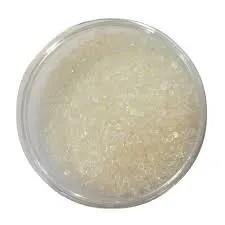chemicals used in effluent treatment plant
Effluent treatment plants (ETPs) play a pivotal role in ensuring that industrial waste is treated efficiently before being released into the environment. The chemicals used in these plants are crucial in breaking down pollutants, neutralizing toxic substances, and facilitating the safe disposal of waste. Here, we delve into the essential chemicals commonly used in effluent treatment processes, providing insights through real experiences and expertise that advocate their effectiveness and necessity.
Coagulants and flocculants are among the primary chemicals employed in effluent treatment plants. They initiate the treatment process by targeting the suspended particles in wastewater, leading to their agglomeration and subsequent removal. Coagulants like aluminum sulfate and ferric chloride neutralize the charges of fine particles, facilitating the formation of larger particles (flocs). Flocculants, often polymers, further aid this process by binding the particulates together, thus enhancing the settling process. Users with experience in various industries have noted the reliability of these chemicals in significantly reducing turbidity and making subsequent filtration steps more efficient.
Another vital set of chemicals includes pH neutralizers such as lime, caustic soda, and sulfuric acid. Control of pH is crucial because many biological and chemical processes in ETPs are highly pH-dependent. Lime is extensively used to increase the alkalinity of acidic industrial effluents, providing a conducive environment for microbial activity in biological treatment processes. Conversely, sulfuric acid is used to neutralize alkaline waste streams. Industry experts highlight the importance of careful monitoring and dosing to ensure not only compliance with discharge regulations but also the integrity of downstream treatment processes.
Biocides and disinfectants, such as chlorine and ozone, are essential in managing microbial contamination. While chlorine is widely used due to its cost-effectiveness and ease of application, ozone, as an advanced treatment option, offers a superior oxidation capability without leaving harmful residues. The choice between these depends on specific operational goals and regulatory requirements. Experiences from long-standing ETP operations suggest that although initial costs of ozone treatment are higher, the long-term benefits include reduced sludge production and a lesser environmental footprint.chemicals used in effluent treatment plant
Reducing agents like sodium bisulfite are crucial in ensuring the removal of residual oxidants, particularly in systems using chlorine or ozone. They help in protecting downstream biological processes from oxidative damage and are integral in achieving compliance with stringent regulatory discharge norms. Professionals in the field emphasize the need for precise application of these agents to avoid secondary contamination while achieving optimal effluent quality.
Moreover, adsorbents such as activated carbon are used to remove organic compounds and trace contaminants from effluents. Activated carbon is praised for its high efficiency in adsorbing a wide range of pollutants, including those responsible for color and odor in wastewater. Field tests and research underscore the effectiveness of activated carbon as a polishing agent that enhances overall treatment efficacy, especially in the final stages of effluent processing.
Finally, dewatering aids are particularly useful in the sludge management phase of effluent treatment. Polymers used as dewatering agents help in achieving higher sludge solids content, reducing the volume and disposal costs of sludge. Industry practitioners advocate for selecting high-quality dewatering agents, tailored to the specific characteristics of the sludge encountered in different industrial settings.
In conclusion, the strategic use of chemicals in effluent treatment plants is instrumental in achieving compliance with environmental standards and in promoting sustainable wastewater management practices. The expertise and real-world experiences shared by professionals reaffirm the critical role these chemicals play in optimizing treatment processes, ultimately contributing to safeguarding both public health and the environment.
More product recommendations



